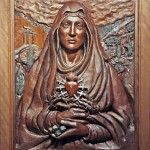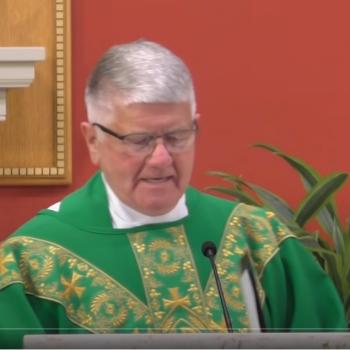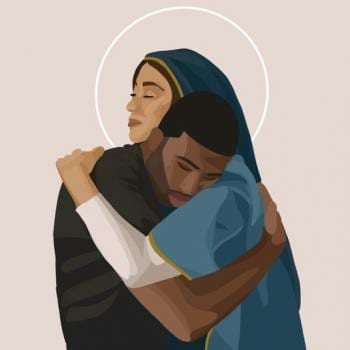“Ah, the pain, the anguish, the sin and despair, the remorse, at not living as one knows one should live, as a human being should live, fully and abundantly! The poor feel guilty too. It has been dinned into them so often that here we have a land of opportunity, of equality, of abundance. What is wrong with them that they cannot get out of the morass, they wonder. One of the saddest things about the poor and the destitute is that they are blamed for it too. Everything is expected of them.” – Dorothy Day
Palm Sunday is behind us and now we stand at the doorway to the Paschal Triduum, our solemn annual recollection of the Lord’s Passion and Resurrection. But this year I can’t stop thinking about a passage from the second chapter of John’s Gospel. It speaks of an earlier sojourn in Jerusalem:
“While he was in Jerusalem for the feast of Passover, many began to believe in his name when they saw the signs he was doing. But Jesus would not trust himself to them because he knew them all, and did not need anyone to testify about human nature. He himself understood it well. (John 2:23-25)”
What was true in the first year of his public ministry was no doubt true in the week of his Passion. “Jesus would not trust himself to them because he knew them all.” Two years had passed, but he hadn’t changed, and neither had they. We haven’t still. We, who just last Sunday held aloft our palms and sang loud hosannas to the donkey-riding king, still threaten him. He invites us to trust him, but he doesn’t return the favor because he understands us all too well. He knows that the price of betrayal, then and now, is the prestige of the crowd, a bit of bread, a moment of pleasure, or thirty pieces of silver.
The poor know it, too. Like Jesus, they’ve heard expressions of loyalty – “I would lay down my life for you, Master” – dissolve into forceful denials. They’ve seen smiling faces later contorted with insults and judgment. They’ve dipped their hands into the bowl with churchmen only to withdraw them bruised and empty. They’ve heard politicians loudly declare their innocence just moments before a deal is reached and hands are washed. They’ve looked down from the cross of their suffering to find that friends and even family have abandoned them in their time of need.
Last Sunday, at the conclusion of a food inequality simulation at my parish, the microphone was passed to a visiting priest. He described an experience years ago when, walking out of St. Patrick’s Cathedral in New York, he was accosted by “bums” and “lowlifes” begging for change. According to the priest, they flocked to him precisely because he was wearing the Roman collar that signifies his identity as an “alter Christi,” another Christ. But when he ran out of change, said the priest, those same panhandlers insulted him. In return, he solemnly vowed that, “I would never return to New York City as a priest,” and, concluding, “I never did.”
How different is this attitude from the kenotic love of Jesus, who sought out the “bums” and “lowlifes” of the world; indeed, who was gladly counted as one among them. Jesus, who was “crushed for our transgressions, bruised for our iniquities,” who, “though he was in the form of God did not consider equality with God as something to be grasped, but emptied himself, taking the form of a servant … and becoming obedient to death, even death on a cross.” What a betrayal of the poor. What a betrayal of Christ! How soon we forget that “God demonstrates his love for us in that while we were still sinners, Christ died for us.” That forgetfulness is the ground of our betrayal of the poor, who still languish on the cross while bearing the face of Christ.












